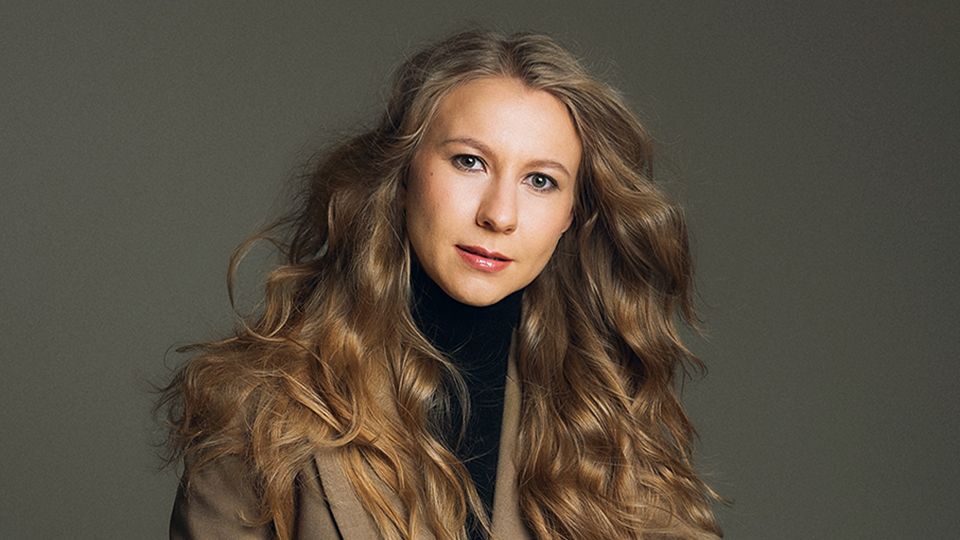Sharon Bentley-Hamlyn (pictured, centre), director and investment manager at Aubrey Capital Management, has worked in the asset management industry for more than 30 years, and feels there is a persistently low level of women represented in the sector.
In the Q&A below, Bentley-Hamlyn and her colleagues Camellia Huang (pictured, left), and Klyzza Lidman (pictured, right), investment analysts at Aubrey, discuss why they feel this is the case, their experiences, and how companies within the investment industry can do better.
Bentley-Hamlyn: Camellia, you are Aubrey’s most recent joiner. Can you share with us something about your experience thus far?”
Huang: I’m originally from China and moved to the UK for education when I was 15 years old. I was inspired and encouraged by my father to join the investment industry and had several women role models in finance.
Growing up in China, it never occurred to me that female representation in the industry is a topic that requires addressing until I joined the investment club at the university. There I saw female students’ participation rate dropping from around 50/50 in my first year of university to around 80/20 in my fourth year, especially in leadership.
It is interesting that a university society is a microcosm of the industry, and behaviours such as boys’ club mentality, non-meritocracy-based promotion, and gender pay gaps still very much exist. These behaviours shouldn’t be the norm of the financial industry, as they negatively affect how our young generation perceive the industry.
Bentley-Hamlyn: Klyzza, you’ve been with Aubrey now for nearly eight years. Does your experience mirror Camellia’s? What drew you to the investment industry? And why do you think women are so poorly represented?
Lidman: My initial impression of the industry was that it was male-dominated and based on stereotypes like the Wolf of Wall Street, and it just completely put me off. I wouldn’t have enjoyed working in that type of environment. This really changed when someone from a private equity firm came in and did a presentation on what it means to invest in a company. The mix of fundamental and quantitative analysis and understanding the potential of a company was something I was drawn to. Then, with Aubrey, Sharon and John Ewart, an investment manager on our global emerging markets strategy, presented Aubrey’s investment philosophy and process at my university. And clearly, it was enough to prompt me to apply and get the job.
Bentley-Hamlyn: Klyzza, you’re still involved at Edinburgh University Business School, giving frequent presentations that encourage students to consider the investment industry. What’s the response you get from women? And why do you think so few women apply?
Lidman: It starts from the beginning. Getting women to see this as an industry they could consider working in with investment analysis as a career choice. The earlier women can consider investment management as a career, the sooner they can develop their skills towards it.
Camellia, were you surprised coming to the UK that the financial sector is so male-dominated? I understand in China, women and finances seem to sit together more naturally; there are clearly cultural differences.
Huang: Growing up in China, women are normally the ones who manage family finances. This was particularly the case in my family, as my mother is an entrepreneur herself. And I grew up learning the importance of financial independence and financial literacy.
The issues around gender diversity and the pay gap persist around the world. But in Asia, interestingly, in contrast to cultural stereotypes, women’s combined wealth overtook that of Western Europe. And this gap is expected to be over $6trn by 2026. Initially, when I saw this gap, I was quite surprised. However, thinking back on the five years of my professional career in the UK, I think I understand why. Most of the time, when I walk into meetings, networking events or conferences, I’m one of the few women there.
Sharon, why do you think it is that so few investment funds end up being managed by women?
Bentley-Hamlyn: Fewer coming into the industry in the first place. Once they get there a culture that isn’t always very pleasant in terms of its aggressiveness, where those who shout the loudest get their ideas implemented. Then there’s the issue of maternity leave, which means a career break, where women may see men advanced ahead of them. It does take about 10 years to become portfolio manager. And so, you need a certain amount of staying power; you need to have seen up cycles and down cycles to know how to manage through them.
Then there’s the issue of senior management on their preference for mixed teams versus women running teams or women-only teams. And if this is the pattern that’s developing, it’s going to allow for a certain amount of gender-washing as companies will claim female representation but without necessarily giving women full investment management responsibility.
And then there’s an allocation bias from fund allocators, the clients. Women are no better than men in that respect, in allocating funds to female teams. Senior management are probably aware of this consciously or subconsciously. That’s why women don’t get promoted.
Huang: Sharon, do you think there’s any intrinsic difference between men and women and their approach to investment?
Bentley-Hamlyn: In terms of analytical ability, absolutely not, no difference at all. It is sometimes said that women are more risk averse, which is not my experience where managing money is concerned, but they are possibly more conscientious in doing the due diligence, taking their time and not shooting from the hip.
We have to support organisations like Future Asset [which aims to enable senior high school female students to gain insight into the investment industry] to get the numbers applying going up.
Klyzza, you mentored the team at Future Asset this year. What was your experience? Do you see any of the girls as future investment managers? Do you think getting female participation matters?
Lidman: I did, and it was really encouraging to see students take an interest in the competition. It was fantastic that they were able to take on a case study of a real company, be mentored by investment professionals and pitch the conclusions. To be honest, it’s not too far off what an investment process can look like. Some students are more interested in it than others. And that’s natural, but it’s great to see that they’re able to explore their interests in such a hands-on kind of way. And I think it goes back to the point that to get more women in the industry, more women need to apply and for that to happen. More women need to be interested and see themselves in this role.





